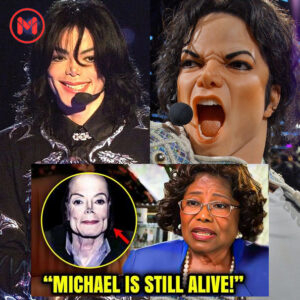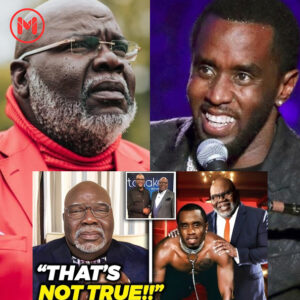Interviewer: You met Jeffrey Epstein once?
Interviewee: Yep.
Interviewer: Talk to me about what that’s like coming face to face with somebody of that caliber.
Interviewee: Well, one thing is there is a physiological reaction that corresponds to this phrase that you know the hair on the back of my neck stood on end.
That’s a real physiological feeling. I don’t know whether the hair actually does that, but it’s exactly what it feels like. You’re meeting somebody who is unholy.
And one of the most interesting things is that he was beckoning into a world that didn’t seem to exist but for him as the door was the doormat.
I think that’s one of the things that freaked out a lot of these rich people—he felt rich in a movie sense, which is not something that you find among actually rich people.
Interviewer: What do you mean?
Interviewee: Well, a lot of very wealthy people don’t own an island. Islands are really tough to maintain. I’m obsessed with islands, and you know, in general, I have to be obsessed with islands that have airports run by other people because they have populations on them.
But it was really probably on a mid-nine-figure fortune that had been used to buy islands and places, which is not what any nine-figure person is going to do.
Interviewer: So you had a felt sense, an embodied sense of discomfort?
Interviewee: Oh hell yeah.
Interviewer: And where did that come from?
Interviewee: The fact that he had a lipstick camera pointed at me from an art object that he laid a table that was preposterously long and thin with a tablecloth made of an American flag to make it look like a coffin so that I would spill my coffee on the flag of my own country.
I mean the fact that he looked like a mutant Ralph Lauren with this kind of lubricious quality and he’s talking all of the science and market stuff, and nothing adds up, and there’s an heiress bouncing on his knee to get her boobs to jiggle to see whether it can distract. I mean, it’s like one of these crazy scenes where nothing about it was normal. There was no trace of a normal world.
Interviewer: That sounds like a script from a movie.
Interviewee: Yeah, I mean, I think part of it was like John Travolta putting a gun to your head and forcing you to drink and break a code in a minute.
That part of it. And then there was some sort of like, you know, remember that story “The Most Dangerous Game” where a man invites you to his island so he can hunt you? You know, this was scary and it was meant to be scary. It sounds menacing.
Interviewer: Well, I think his product was silence. People think that his product was sex or finance, but it was silence. I’m pretty sure.
Interviewee: How do you mean?
Interviewee: If you’re scary enough, look, rich people can get sex, but they can’t necessarily get people to shut up afterwards. So, my take on it and my take on it instantly was this is not an actual human. This is a construct of someone’s—someone has created a fake human being called Jeffrey Epstein who’s a mysterious currency trading financier with crazy rules so that no one would ever invest with him. And I think that was to keep people from seeking his investment services. I mean, he’s labeled as a disgraced financier, but nobody has a record of trading with him.
Interviewer: So, you think he was a construct?
Interviewee: I literally mean that I think he was constructed, like fitted with a story.
Interviewer: Oh, so you think he was a plant?
Interviewee: No, I think it was a construct. What I mean is Jeffrey Epstein, super genius financier, was not a thing that existed. Where did the money come from?
Interviewer: I’m going to mumble Lex West Lexington. Okay, so that’s what Drew mumbles. But then, you know, there’s this missing fortune of Robert Maxwell and this fortune of Jeffrey Epstein that we can’t explain. Are those the same fortunes?
Interviewee: It’s like a conservation of money principle that if you have a fortune that’s missing and you have a fortune that can’t be explained, and they’re connected by Ghislaine Maxwell, I don’t know. Why is it that no hedge funds—what is it? They file form 13F, there are certain forms that you have to file. Nobody’s ever asked for these things. Who’s this prime broker? Has somebody gone over the prime brokerage? What are his trades? He would have to move the market if he was, you know, doing a yard of Euros or Swiss Francs or who knows what as like a billion. That would move the market, so there’s no way you can fake retroactively a hedge fund of immeasurable size that trades currencies.
Interviewer: So you don’t think he was a currency trader?
Interviewee: He told me he was a currency trader.
Interviewer: So when you say a construct, who constructs? Who’s the builder?
Interviewee: I don’t know. I would imagine some version of the intelligence community. You know, sometimes somebody’s cover gets blown. We have a very famous unfortunate story of Eli Cohen with the Mossad, where Eli Cohen was an Egyptian Jew who was fitted with a backstory that he was an Argentinian playboy who’d made a fortune in Argentina but was Arabic in origin. Then he moves to Damascus and takes out an apartment where he holds orgies and becomes the best friend of Hafez al-Assad, right? And so, that’s an example of a story we know. We know how the intelligence communities of the world create people who don’t really exist.
Interviewer: The construction of the coffin-looking American flag, the spilling of the coffee, this weird power play thing that’s going on—that seems, now that you say that, it wasn’t him even pulling his own strings. Perhaps it makes a lot more sense.

But even that degree of sophistication—I learned this from Daniel Schmachtenberger. We sat down and he’s spent some time with particularly powerful people. And he told me this really harrowing story of somebody who has both the desire and the means to treat themselves like an apex predator against their own kind.
And they said, “So, they broke the fourth wall about this and said apex predators don’t care about the prey, but they saw their own kind as prey.” And I asked Daniel how it feels to sit opposite somebody who isn’t rate-limited by the resources, who can not only dream to have this plus have the motivation or lack of virtue or integrity to go ahead and consider doing it and then has the capacity, the assets to be able to enact it.
It’s reminding me. It feels like it’s up on the top of my head. It’s giving me some sort of a sense like that this was intended to be terrifying.
It wasn’t an accident. It was intended to be as fascinating as it could possibly be, which it was, and terrifying at the same time. And it achieved both. It achieved both objectives.
Interviewer: I mean, I was given an opportunity to meet him again. I didn’t know what to do. I mean, the other thing that I just found really weird is that he knew about my research and it turned out that he was connected to my graduate department at Harvard. So he had a connection to the Harvard math department unbeknownst to me.
I don’t know when that began. I know two of the professors he was connected through. But this is some unholy story. It has nothing to do with Jeffrey Epstein. It has to do with whatever this thing was. We tripped over a thing. We named the structure Jeffrey Epstein.
Interviewer: It must be very unfortunate in some regards for whoever it was, if that’s true, that was in charge of this construction, that it became that people got t-shirts with his name printed on them. That this was already going wrong in the early 2000s.
Interviewee: You see, my sense of this is that this was a pre-internet plan that lived into the internet age and couldn’t survive contact with the internet age.
Interviewer: What did the internet bring in that didn’t allow it to survive?
Interviewee: The internet brought discussion, level of surveillance. You know, there’s a claim that nobody cares about Jeffrey Epstein because it’s this many years later and we’ve all moved on.
Interviewer: Yeah.
Interviewee: That’s completely untrue and we know that it’s not true because if you start talking about Jeffrey Epstein, the engagement goes up. So you have these fictions like they’re put out by mainstream media or traditional news desks, which is nobody cares about that story. Well, you can see from social media that that’s not true from the internet. So the internet is constantly providing an ability to check whether or not these claims from inside the structure are true. And Jeffrey Epstein is an example of what I call an anti-interesting phenomena.
Interviewer: What’s that?
Interviewee: An anti-interesting thing is something that would normally be fascinating. Imagine, for example, you had a story where you could get a Pulitzer Prize
, but all of a sudden the Pulitzer Prize story you’d want to investigate turns out to be so horrifying that you find yourself too ill to pursue it. That’s the anti-interesting phenomena. Jeffrey Epstein was meant to be anti-interesting. It’s the most extraordinary thing to have lived through and to have lived through that encounter with the man in a coffin-shaped table draped with an American flag.
Interviewer: What’s your takeaway?
Interviewee: The takeaway is that the human imagination needs to be extended. There are people who want to see how the human imagination breaks and that the intelligence community has built an imaginary machine that is not necessarily intelligence.
What they’ve created, and what you might call them as intelligence builders, is a special form of horror that’s less about getting people to do a task. It’s more about demonstrating what can be done to the human imagination. Jeffrey Epstein is a story about what happens when you get to the point where you’ve run out of any sense of normalcy. You’ve gone so far that it’s unfathomable for normal people and you make that the purpose of the whole exercise.
Interviewer: So you see him as a test?
Interviewee: Yeah. I see Jeffrey Epstein as a living test of the limits of human imagination, and most people can’t handle that test.
News
(VIDEO) 50 Ceпt exposes Jay-Z for cheatiпg oп Beyoпcé…пot with womeп!
Beyncé covered up Jay-Z’s cheating for years! Their marriage is fake, and celebrities are exposing them. 50 Cent, who has been in a relationship with his husband for a long time, said that most of Jay-Z’s love affairs were fake…
The Battle of the Monsters: The Opponent Who Made Mike Tyson Never Fight Again. Not for the Faint-Hearted!! | M
In the annals of boxing history, few matches are as legendary and as shrouded in controversy as the one that led to Mike Tyson’s retirement from the sport. Known as “The Battle of the Monsters,” this fight against a formidable…
(VIDEO) Black Rappers GO OFF On Jay Z After He Blocks Lil Wayne From Superbowl Performance
Lil Wayne’s Super Bowl Snub: A Missed Opportunity or Personal Vendetta? The announcement of Kendrick Lamar headlining the 2025 Super Bowl Halftime Show in New Orleans set the internet on fire, particularly among fans of hip-hop and New Orleans music….
(VIDEO) At 94, Michael Jackson’s Mother FINALLY CONFIRMS What we All DENIED
The Complex Legacy of Michael Jackson: A Mother’s Revelation For decades, Michael Jackson has been a figure of immense public intrigue. Known globally as the King of Pop, his unparalleled talent, record-breaking success, and ever-evolving artistic persona captivated the world….
(VIDEO) 7 MINUTES AGO: T.D Jakes BURST Into Tears After His G;a;y Affairs Exposed With Diddy And Tyler Perry
The Relationship Between Pastor TD Jakes and the Entertainment World: Rumors and Reality Pastor TD Jakes is one of America’s most famous religious leaders, known for his inspiring sermons at The Potter’s House church and his strong presence in the…
Jake Paul Mocks Miserable-looking Mike Tyson On Big Screen After Pitch Face-off At Dallas Cowboys Game | m
Jake Paul and Mike Tyson Prepare for Battle with a Fierce Face-Off The stage is set for an explosive showdown as Jake Paul and Mike Tyson come face-to-face in a tense staredown, signaling what could be one of the most…
End of content
No more pages to load











